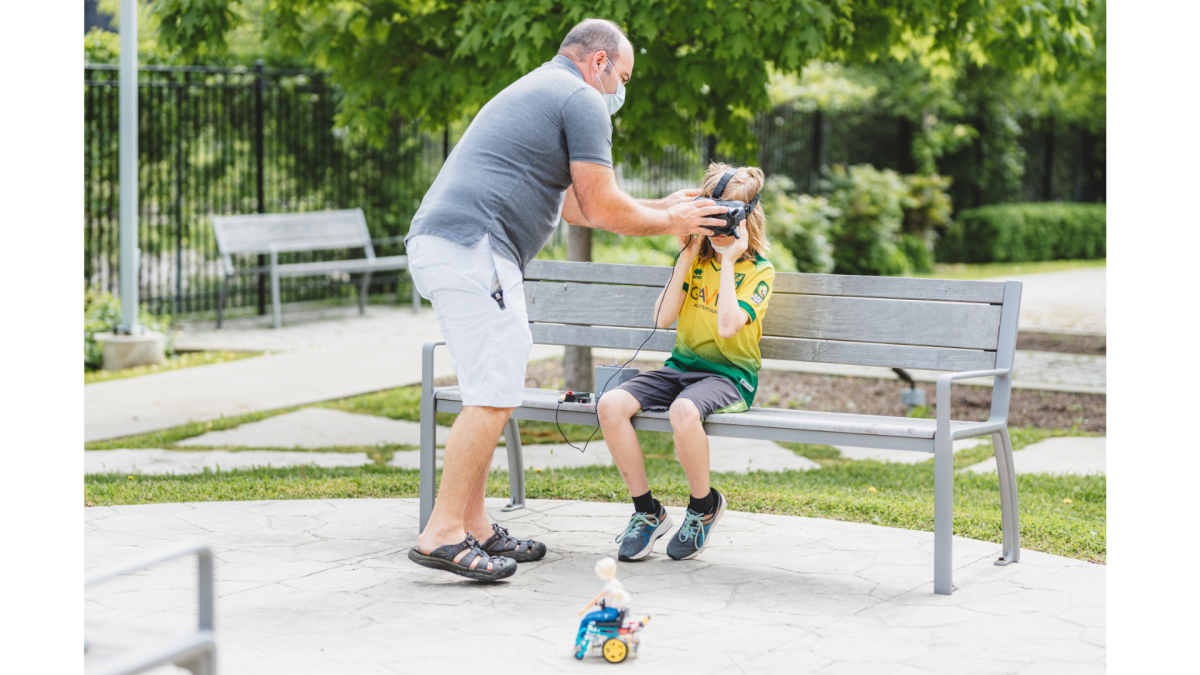A former electrician volunteering with a Hamilton Health Sciences (HHS) club for outpatients says the “entire goal” of the program is to teach kids STEM (science, technology, engineering and math) through robotics.

Mike Berube, whose daughter is a patient at Ron Joyce Children’s Health Centre (RJCHC), says the hospital’s robotics club is teaching youth how to apply basic math and science learned in public schools to build social and problem-solving skills.
“So it’s all about life skills,” Berube told 900 CHML’s Good Morning Hamilton.
“When these kids go forward, we want to give them as many opportunities, as many career paths as they possibly can.”
An example of a club project is a recent remote control (RC) car conversion which transformed it into a motorized wheelchair for a Barbie doll.
The custom toy is meant to be a learning aid for kids with limited mobility to maneuver their own motorized chairs via a custom wireless joystick and camera simulating the experience.

Get daily National news
“We teach kids to program robots and modify robots, and purposely ask kids questions based on what they’re learning in school through math,” said Berube.
“Then they have a map they actually have to compete against and use the math that they’re actually using in school in a real-world application.”
Aside from building devices, Berube also utilizes his knowledge of coding to help kids program commands.
Using data to map out a robotic Bocce ball game with Sphero branded polycarbonate spheres was an example of a recent module.
The club was developed in 2019 via a campaign put together by the clinical leader of developmental pediatrics and rehabilitation at the RJCHC, Lindsay Bray.
With Berube on board to lead it, the program’s objective was to take advantage of more publicly-accessible technologies, like RC cars and drones, and put them into the hands of kids.
“Toy robots provide important play experiences for children with physical, developmental and social limitations,” says Bray.
“Research shows that participating in a robotics program can help kids’ critical thinking, problem solving skills, spatial abilities and their ability to work as a team.”
Aside from his electronics background, Berube’s connection with the enterprise is through a daughter, Petra, born with a genetic condition where part of one of her chromosomes is missing. The eight-year-old is non-verbal and has challenges with gross motor skills affecting balance and coordination.
With the lifting of restrictions tied to the COVID-19 pandemic, the program returned to in-person Saturday sessions in the lobby of the RJCHC last month.
The group also uses space outside in a courtyard.
Aside from providing an education space, Berube says the club utilizes some of their creations for kids who may have limited access to environments.
“For example, kids that might be in a wheelchair can take modified RC cars, that we put remote cameras in, and can wear virtual goggles to explore playgrounds, fields, forests, anything that might not actually be accessible to them,” Berube said.
The robotics club is likely to continue on a weeknight in the summer and is earmarked for patients aged nine to 15.
Parents interested in having a youth join can reach out to Bray at 905-521-2100, ext. 74469.













Comments